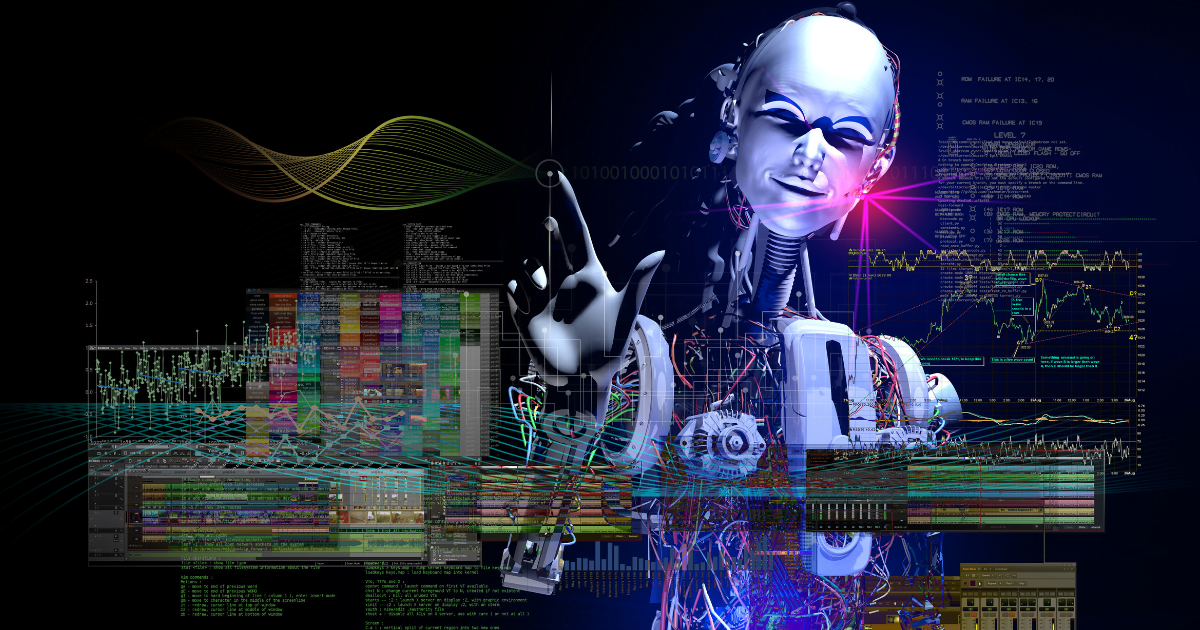
Empowering Accountants: Unveiling the Dynamic Future of Accounting in the Digital Era
Despite skeptics who claim accounting has no place in the digital age, cutting-edge technologies such as cloud-based data management, automated processes, and advanced analytics hold the key to making accountants more powerful and effective.
Future Of Accountants
Since 2015, industry leaders have predicted the demise of traditional accounting due to emerging technologies, especially automation. Accountants themselves have expressed concerns about being replaced, having fewer opportunities for creative problem-solving, and becoming overly dependent on technology, as revealed in a survey by Robert Half on the impact of automation on their careers. However, recent events, including the Covid-19 pandemic, have demonstrated the importance of adaptability over substitution.
The digital economy’s transformation has profoundly reshaped the business landscape, making big data an invaluable resource for competitive advantage. While it presents challenges, it also offers opportunities for businesses that are ready to harness its potential.
Ai, Automation, And Cloud Technologies
In the ever-evolving landscape of accounting, the future holds immense opportunities through the convergence of AI, automation, and cloud technologies. These cutting-edge advancements are reshaping the way accountants operate, enabling them to drive efficiency, accuracy, and strategic value within organizations.
Cloud technology has emerged as a game-changer, proving to be cost-effective and streamlining data management processes. It enhances communication, collaboration, and accessibility, while standardizing operations and creating a unified datasphere. Contrary to concerns, data quality actually improves as transparency increases, defying the notion that volume hampers accuracy.
Automation takes center stage by liberating accountants from mundane manual tasks. Cumbersome data entry and matching processes are automated, minimizing human error and reducing costs. This empowers accountants to shift their focus towards strategic endeavors that demand creativity, collaboration, and problem-solving skills, where the human touch remains invaluable in surpassing the capabilities of AI.
AI, on the other hand, excels in data analysis, performing intricate tasks with remarkable precision. By transforming raw data into actionable insights and establishing connections between diverse data sources, AI provides a foundation for informed decision-making. Accountants, leveraging their unique human skills, refine these insights, translating the “what” into the crucial “hows” and “whys” that drive meaningful financial planning and reporting.
Within this integrated environment, accountants become catalysts for collaboration, working hand-in-hand with peers from various business units. They contribute to building resilient supply chains, fueling growth, and ensuring operational continuity by leveraging the power of financial data. By harnessing the potential of AI, automation, and cloud technologies, accountants shape a future where financial intelligence intertwines with strategic vision.
The future of accounting holds a promising synergy between technology and human expertise. As organizations embrace these advancements and equip their accounting teams with the necessary tools and skills, they will unlock the true potential of their financial operations. Together, we can pave the way for a transformative era in accounting, where efficiency, agility, and informed decision-making flourish.
The Future of Accounting is Bright
As we navigate the future of accounting, one thing is certain: embracing technology is the key to success. It’s not just about automation; it’s about empowering accountants to become strategic partners within their organizations. By investing in the right tools, training, and infrastructure, organizations enable their accountants to leverage technology’s full potential. This paves the way for increased efficiency, agility, and competitiveness in an ever-evolving business landscape.
At Gerbes.eu, we understand the significance of technology in shaping the future of accounting. Our team of qualified accounting consultants and management assistants is at the forefront of these advancements. We offer tailored solutions and expertise to help businesses navigate the digital transformation journey, optimize accounting processes, and embrace the future of accounting. Schedule a meeting with one of our consultants to discuss your specific needs, and together, let’s unlock the full potential of accounting in the digital era.
Technology Adds Value.
The use of VR, augmented reality, and mixed reality technologies will go beyond video games to allow users to explore, analyze, and share data in entirely new ways. New ways of optimizing processes will also be developed, that will connect finance with strategic planning.
In the ever-evolving landscape of accounting, the future holds immense potential for growth and transformation, largely driven by technology. As we look ahead, it becomes evident that embracing technological advancements is key to unlocking new opportunities and delivering enhanced value in the field of accounting. Let’s explore how technology is reshaping the future of accounting and the invaluable benefits it brings.
- Cloud-Based Data Management: As we step into the future of accounting, cloud-based data management emerges as a fundamental enabler. The utilization of cloud technology revolutionizes how accounting data is stored, accessed, and shared. With secure and centralized platforms, accountants can collaborate in real-time, ensuring seamless data flow and fostering efficient communication across teams and departments. This approach eliminates data silos, enhances transparency, and elevates data quality, while also reducing costs and minimizing manual errors.
- Automated Processes: Automation is set to redefine the accounting landscape in the future. Mundane and repetitive tasks can now be automated, liberating accountants from time-consuming manual labor and allowing them to focus on strategic activities. By leveraging automation tools, accountants can significantly improve process efficiency, reduce errors, and enhance productivity. Streamlined workflows facilitate swift and accurate record-keeping, empowering accountants to concentrate on critical thinking, creative problem-solving, and high-value tasks.
- Advanced Analytics: The future of accounting is driven by data, and advanced analytics holds the key to unlocking its true potential. Accountants equipped with analytics tools can derive meaningful insights from vast amounts of financial data, uncovering trends, patterns, and outliers. These insights drive informed decision-making, enable precise financial planning, and offer strategic recommendations for optimizing performance and mitigating risks. By harnessing advanced analytics, accountants become valuable assets in driving business growth and operational excellence.
- Artificial Intelligence (AI): AI is poised to become a prominent force in shaping the future of accounting. AI-powered systems excel in data analysis, processing, and pattern recognition. However, the true power of AI lies in collaboration with human accountants. By leveraging AI capabilities, accountants can transform raw data into actionable intelligence, unveil hidden trends, and gain deeper insights into financial performance. This symbiotic relationship between AI and human accountants empowers more effective decision-making, improved financial planning, and agile problem-solving.
- Emerging Technologies: The future of accounting is rich with possibilities brought by emerging technologies. Innovations like virtual reality (VR), augmented reality (AR), and mixed reality (MR) offer immersive ways to explore, analyze, and share financial data. These technologies drive novel approaches to process optimization and strategic planning. Additionally, the potential of blockchain technology in accounting cannot be overlooked. With its capabilities in supply chain optimization, process development, auditing, and records management, blockchain opens new avenues for accountants to add value.
Embracing technology in accounting is not limited to automation; it empowers accountants to become strategic partners in their organizations. By embracing these transformative technologies, accountants position themselves as proactive contributors to strategic decision-making, risk management, and compliance. Organizations that invest in the right tools, training, and infrastructure enable their accountants to harness the full potential of technology, paving the way for increased efficiency, resilience, and competitiveness in the evolving business landscape.
At Gerbes.eu, we understand the significance of technology in shaping the future of accounting. Our team of qualified accounting consultants and management assistants is at the forefront of technological advancements in the field. We offer tailored solutions and expertise to help businesses navigate the digital transformation journey, optimize their accounting processes, and capitalize on the future of accounting. Schedule a meeting with one of our consultants to discuss your specific needs, and let us be your trusted partner in embracing the future of accounting.
The future of accounting is poised for a remarkable transformation, demanding accountants to possess broader skills and embrace a more extensive job description while upholding the core competencies of the profession. These dedicated accounting professionals will collaborate with subject matter experts from various domains within the organization, forming cohesive teams empowered by cutting-edge technology.
Tomorrow’s accountants will embark on strategic initiatives, working alongside business intelligence and procurement professionals to chart strategic sourcing plans. By leveraging data management tools, including augmented reality, C-level executives will gain enhanced insights into spend data, enabling them to make informed decisions that humanize and contextualize financial information.
Drawing upon their diverse skill sets and technical expertise, professional accountants will offer critical financial intelligence, refine budgets, and ensure compliance with laws and regulations. Organizations may explore strategic outsourcing to bridge technological gaps or acquire training and tools to enhance their own capabilities.
Thriving in a complex and ever-changing business environment will necessitate a commitment to lifelong education and skills development. The future of accounting will shift focus from mere certifications to the continuous growth of core competencies.
Automation and data-driven technologies are poised to liberate accounting professionals, rather than restrict them. Organizations that invest in the requisite tools and training will unlock the tremendous potential of these technologies, enabling accountants to fully capitalize on their capabilities. As a result, accountants will assume a greater role within their companies, fostering creativity and strategic thinking. This shift will empower businesses to enhance their resiliency, agility, and competitiveness by optimizing accounting processes and gaining valuable insights from their financial data.
The future of accounting is teeming with possibilities. Embrace the transformative power of technology, equip accountants with the necessary resources, and unlock the full potential of relevance, strategy, and creativity. By doing so, businesses will position themselves at the forefront of innovation, prepared to navigate the dynamic landscape and seize new opportunities in the ever-evolving world of accounting.
Here’s What’s Next
Are you ready to embark on a journey of accounting transformation? At Gerbes.eu, we have a team of highly skilled accounting consultants and management assistants who are well-versed in the evolving landscape of the industry. Our experts are here to assist you with your project and guide you through the intricacies of accounting in the future.
Schedule a meeting with one of our consultants to discuss your unique needs and requirements. We understand that every project is different, and we are committed to tailoring a solution that perfectly aligns with your goals. Our team will work closely with you to develop a customized project that caters to your specific challenges and aspirations.
Rest assured, we only deliver the best experts to join your team. With our extensive network of professionals, we can handpick individuals who possess the right expertise and experience to drive your accounting transformation forward. Whether you need assistance with cloud-based data management, automated processes, advanced analytics, or any other cutting-edge technology, our consultants are well-equipped to support you every step of the way.
The future of accounting is full of possibilities, and with Gerbes.eu by your side, you can confidently navigate the changing landscape. Embrace the future today and unlock the true potential of your accounting practices. Contact us now to schedule a meeting and embark on a transformative journey towards a more efficient and effective accounting future.


 June 19, 2023
June 19, 2023 